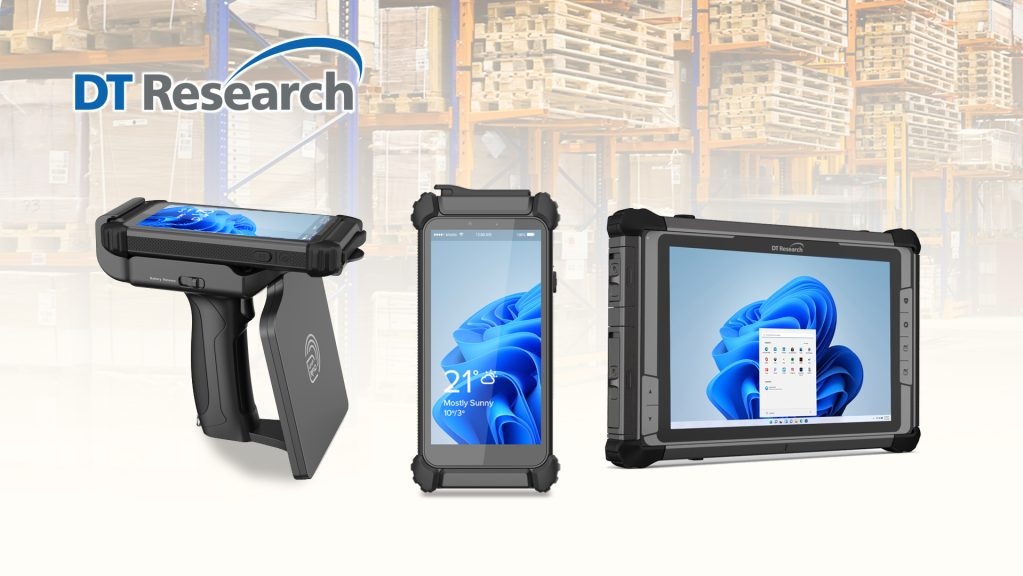
Logistics and asset management have always been about precision, speed, and control. The stakes are high whether it’s keeping track of shipments moving across a supply chain or managing valuable equipment across large sites.
Rugged tablets equipped with RFID, barcode scanners, and Artificial Intelligence (AI) are changing how logistic teams handle these challenges, making operations smarter, faster, and more resilient.
Rugged Tablets: Built for Demanding Work
At the core of this transformation are rugged tablets. Unlike fragile consumer devices, rugged devices are engineered to survive the extreme environment of warehouses, loading docks, and outdoor sites. Rugged tablets are resistant to drops, dust, water, and extreme temperatures, ensuring workers can focus on their tasks without worrying about equipment failure.
But durability is only one part of the story. These rugged tablets also come equipped with RFID and barcode scanners, making them powerful all-in-one tools for capturing and managing data on the go.
RFID for Real-Time Visibility
Radio Frequency Identification (RFID) technology allows teams to scan multiple items instantly, without line-of-sight. In a demanding warehouse, this means entire pallets or shelves of tagged items can be logged in seconds. In asset management, RFID provides real-time updates on the location and usage of high-value equipment, reducing losses and improving accountability.
When integrated into a rugged tablet, RFID scanning streamlines workflows and eliminates the need for separate handheld readers. Rugged tablets also allow data to flow seamlessly into centralized systems, keeping inventory records accurate and up to date.
Barcode Scanning for Everyday Tasks
While RFID excels at bulk identification, barcode scanning remains essential for item-level accuracy. Rugged tablets with built-in scanners let workers quickly check shipments, validate orders, and manage returns; all without juggling multiple devices. Having barcode functionality in the same rugged tablet means tasks can be completed faster and with fewer errors, even in high-pressure environments.
The AI Advantage
The addition of AI takes these tools to an entirely new level. With rugged tablets acting as the frontline data collectors, AI systems can process the information to uncover patterns, predict issues, and recommend actions.
For logistics, this could mean predicting delays before they happen by analyzing shipment data and external factors like traffic or weather. In asset management, AI can detect usage trends, helping organizations anticipate when equipment needs maintenance or replacement. The result is a proactive approach rather than a reactive one – saving time, reducing costs, and improving reliability.
Smarter, Seamless Workflows
When rugged tablets, RFID, barcode scanners, and AI work together, everyday tasks become more efficient. Imagine a delivery worker scanning barcodes to confirm an order, while RFID instantly verifies the larger shipment. The tablet uploads the data in real time, and AI analyzes it to highlight discrepancies, recommend rerouting, or flag potential shortages.
This seamless integration reduces paperwork, speeds up decision-making, and ensures that data accuracy isn’t compromised. For workers, it means fewer repetitive tasks and more focus on meaningful problem-solving.
A Human-Centered Approach
What makes this technology powerful isn’t just the advanced features, it’s the impact on people. Workers gain reliable, easy-to-use tools that reduce frustration. Managers receive clearer insights that help them make better decisions. Customers benefit from more accurate deliveries and improved service.
Ultimately, rugged tablets with RFID, barcode scanners, and AI bring together durability, intelligence, and simplicity to empower people at every stage of the logistics and asset management process.
The future of logistics and asset management is not about choosing between durability, data capture, or intelligence, it’s about combining them. Rugged tablets with RFID, barcode scanners, and AI provide the foundation for smarter, faster, and more reliable operations. In a world where efficiency and accuracy define success, these tools are helping organizations stay ahead while making daily work more manageable for the people who keep supply chains moving.

